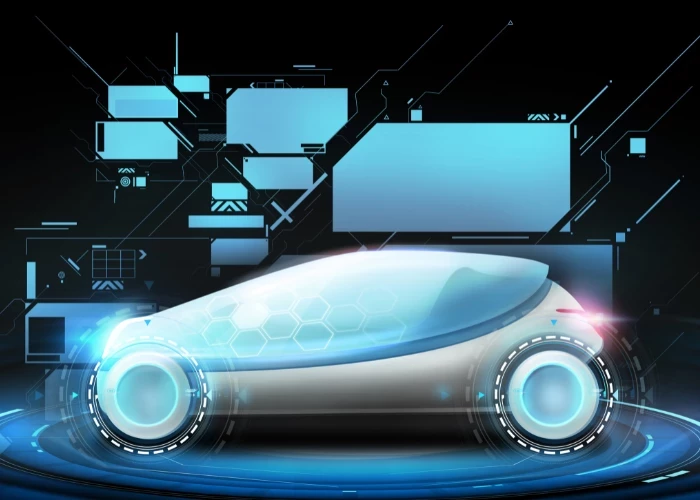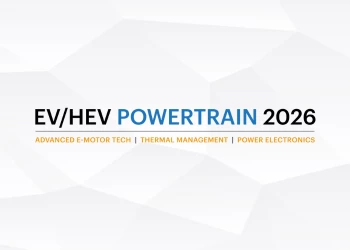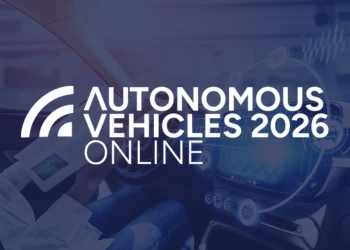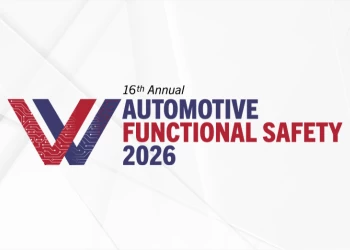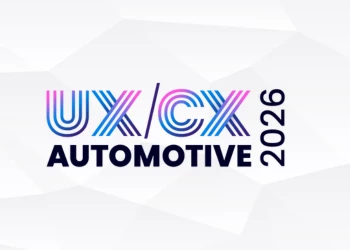The Future of the Diesel Engine and Clean Diesel
Add bookmarkIn light of the VW diesel scandal and subsequent allegations against various other automakers, the diesel engine is coming under ever more intense scrutiny. Rather than an isolated incident whereby VW was the only OEM to install ‘cheat’ devices to circumnavigate emissions tests, various commentators are now referring to an industry-wide problem. The manufacturers in question of course vehemently deny any wrongdoing, and it will be some time perhaps before all questions are answered.
In the meantime however, the reputation of diesel engines is on a downward curve, and public suspicion has led to a drop in sales and share prices of those companies either affected or implicated. Diesel is a much more common fuel type in Europe than the US, where diesel vehicles make up just a small percentage of the market, but it remains to be seen how these various scandals will affect the market in the long term, and the very future of diesel engines and clean diesel in an increasingly environmentally conscious world. Let’s recap on the stories that have hit world media over the last year in relation to diesel emissions.
Volkswagen
VW is the only place to start and it is the company at the centre of the whole affair. Once the scandal broke it didn’t take long for the German carmaker to admit that some 11 million of its vehicles were fitted with software designed to ‘cheat’ on emissions tests and produce results that met regulations but were wholly inaccurate in real world conditions. The US Department of Justice quickly filed a lawsuit against the company, while other international regulators are conducting their own investigations.
In April 2016 VW agreed to fix or buy back 480,000 vehicles in America although details are yet to be announced as to how this process will work. The company set aside approximately 16 billion Euros to cover compensation, fines and legal costs, and according to Bloomberg, VW is due to submit a $10 billion action plan to US government and California regulators later this month to either fix the cars or take them off the road. No details of any deal have been made public yet, nor have any fixes been approved.
It is the start of a long road for VW though, and it has seen share prices drop by 6% since the preliminary agreement was announced in April. Chief Executive Officer Martin Winterkorn resigned just a week after the scandal first broke, and his successor Matthias Mueller has introduced a sweeping strategy to focus on electric cars and automated driving which will include 10 billion Euros of investment up to 2025.
Opel
It isn’t just VW that have been implicated in what is now crassly known as Dieselgate, far from it. In May 2016 experts from Germany’s TÜV Nord said they had discovered defeat devices in diesel cars made by GM’s European arm, the Opel Group. This report goes against the German government's initial analysis that no other automakers had used defeat devices like those found in Volkswagen vehicles, but nonetheless government officials asked Opel for an explanation of ‘irregularities’ in some of its diesel-powered vehicles.
There are some very subtle differences however, and Opel along with many other automakers have been found to be applying very liberal interpretations to EU regulations on emissions rather than applying similar cheat devices to those found in VW cars. Indeed, Opel admitted that the exhaust treatment of a diesel-powered Zafira would only be fully operational in a narrow temperature window of 20-30 degrees centigrade. The new report from TÜV Nord stated that tests and analysis of the engines computer code revealed that the exhaust treatment of the Opel vehicle would switch off:
- When the engine runs at higher revolutions than 2400 rpm.
- When the car goes faster than 145 km/h.
- And when the barometric pressure is higher than 915 millibar (indicating an elevation of over 850 metres).
General Motors has strenuously denied any wrongdoing or the implementation of cheat devices, but it is indicative of how manufacturers have interpreted the EU loophole which states that exhaust treatment can be turned off at certain temperatures to avoid damage to the catalytic converter due to condensation. More details of the testing will follow and shed more light on whether Opel have remained within regulations.
Daimler
Previously, in April of this year, Daimler announced that it was to carry out an internal investigation into its emissions test process at the request of the US Department of Justice. A lawsuit had already been launched against the German company by a group of car owners in the US claiming that Mercedes-Benz BlueTEC diesel vehicles contained similar defeat devices to VW, although Daimler has dismissed the claims as baseless and said in a statement that it was cooperating with authorities fully.
Despite Daimler’s response, share prices fell quickly by 7% reflecting investors’ nervousness about another potential scandal.
[inlinead]
Other News
Could these new developments simply be the tip of the iceberg? Several other OEMs are under scrutiny, including Nissan, Mitsubishi, Audi and Peugeot.
In May South Korean officials announced that Nissan had manipulated emissions on a diesel sports utility vehicle, and that they were preparing to fine the company and sue the head of Korean operations.
In April Mitsubishi Motors admitted to manipulating the fuel consumption data of its cars, with the scandal ending the carmaker’s independence as it is set to be effectively taken over by Nissan.
Meanwhile, also in Korea, the offices of Audi and Volkswagen were raided along with those of two PR companies amid the ongoing scandal. Johannes Thammer and Thomas Kuehl - presidents of Audi and Volkswagen Korea - were charged with violation of Korea’s clean air act, and could potentially face up to five years in prison if found guilty.
The offices of PSA Peugeot Citroën were raided in separate probes by investigators, and real world testing is being carried out in several countries including the United Kingdom, Germany, France, Italy, Canada and the US. The results of these tests when forthcoming threaten to deepen the scandal further.
What of the Future?
At present carmakers are understandably bullish about the continuation of diesel engines for the future through better technology and cleaner emissions, but the smaller passenger car may be one sector that suffers, while the ramifications will surely be much more widely felt in Europe than the US.
Diesels account for around half of all new vehicles sold in Europe due to better fuel economy and the price of fuel, but in the US it has never been overly popular partly because gasoline is that much cheaper. European regulations have tended to be rather more lenient than those across the Atlantic, too, but this will change when new standards are brought into play from September 2017.
VW appeared to have it cracked when they produced a four-cylinder diesel engine for small passenger cars, even as many other manufacturers moved away from diesel to concentrate efforts on hybrid vehicles and more efficient gasoline engines. Clearly we now know that the efficiency of the engine was masked by defeat devices and in real world conditions produced vastly more emissions. That could signal defeat for diesel-powered vehicles in small, affordable vehicles, but it is almost certain to remain popular in larger vehicles, freight vehicles and industrial vehicles.
On the other hand, continued development could lead to new and improved diesel engines that really do meet emissions targets, as well as providing efficiency and affordability. Mercedes-Benz has not yet given up on the idea, and recently announced a diesel engine that is the first to market to meet the new targets on emissions set for September 2017.
The carmaker says that this new engine achieves the standards due to an integrated approach that includes new stepped combustion chambers and further developed exhaust gas recirculation. The new four-cylinder OM 654 engine allows all components to be positioned on the engine rather than below the car floor, thus improving overall efficiency. The engine will be launched in the new E-Class, and is the first member of a new family of engines that will eventually be applied throughout the portfolio of all Mercedes-Benz cars and vans. The OEM has said that it will equip its entire range of diesel vehicles in Europe with this engine, including SCR technology, by 2019 at the latest.
SCRi-System for Multicar Fumo - © Michael KR - wikipedia
Alternative Engine Types
Of course, emissions regulations are not the only threat to the diesel engine. The rapid development of hybrid and electric vehicles has initiated a real change of direction across the industry, and perhaps a big hint of how the future will pan out for European diesel vehicles is in Volkswagen’s Strategy 2025 Business Plan which highlights the manufacturer’s intentions across its Audi, Porsche, SEAT, Skoda and VW brands.
At Volkswagen’s New Year reception in Brussels Matthias Mueller outlined the group’s emphasis and investment in electric vehicle technology, with over 30 new e-vehicles set to be introduced by 2025. These new vehicles will use more efficient battery technology to enhance the range compared with the current line up, while greater investment will also be made in autonomous driving features as VW prepares to develop its own self-driving system.
These new vehicles will include standalone models as well as electric versions of current gasoline and diesel models, with Mueller quoted as saying, “We are using the current crisis to fundamentally realign the group. I strongly feel we now have the chance to build a new and better Volkswagen.”
The next Phaeton is slated to be a fully electric drive luxury saloon, which will inspire a full range of plug-ins, high-volume electric vehicles with ranges of 185 miles, and 48-volt mild hybrids. An ‘MEB Modular Toolkit’ will enable standardised electric and plug-in hybrid powertrains, allowing the technology to be used across all body styles and vehicle types in the VW range.
The company is forecasting that as many as 3 million of its vehicles will be electric by 2025, making up over a quarter of global sales of 10 million vehicles. Although VW has pledged to continue development in gasoline and diesel engines with the promise of greater efficiency, this step change is indicative of the general trend towards electrification.
Summary
The dieselgate scandal looks set to run on for some time, and no doubt more details will come to light in the coming months. For manufacturers the challenge is to produce economical diesel engines that can meet the more stringent EU requirements, and the very future of ‘clean’ diesel may well rely upon their success. In the short term diesel engines will continue to make up a large proportion of the European market, but in the long term diesel-powered vehicles may have to make way for more efficient and environmentally-friendly powertrains.
Sources:
http://www.bloomberg.com/news/articles/2016-06-18/vw-said-ready-with-10-bln-diesel-accord-to-devise-fix-later
http://www.forbes.com/sites/bertelschmitt/2016/05/12/dieselgate-at-gm-report-finds-defeat-devices-in-opel-cars/#732e00f24f3b
http://www.ft.com/cms/s/0/10283de0-081e-11e6-a623-b84d06a39ec2.html#axzz4CCcw5tzl
http://www.fleetnews.co.uk/news/manufacturer-news/2016/05/27/new-mercedes-benz-diesel-engines-fulfils-future-real-world-driving-emissions-requirements
http://www.forbes.com/sites/bertelschmitt/2016/05/16/vw-daimler-nissan-mitsubishi-gm-can-we-finally-agree-that-dieselgate-is-an-industry-problem/#750718d3245e

